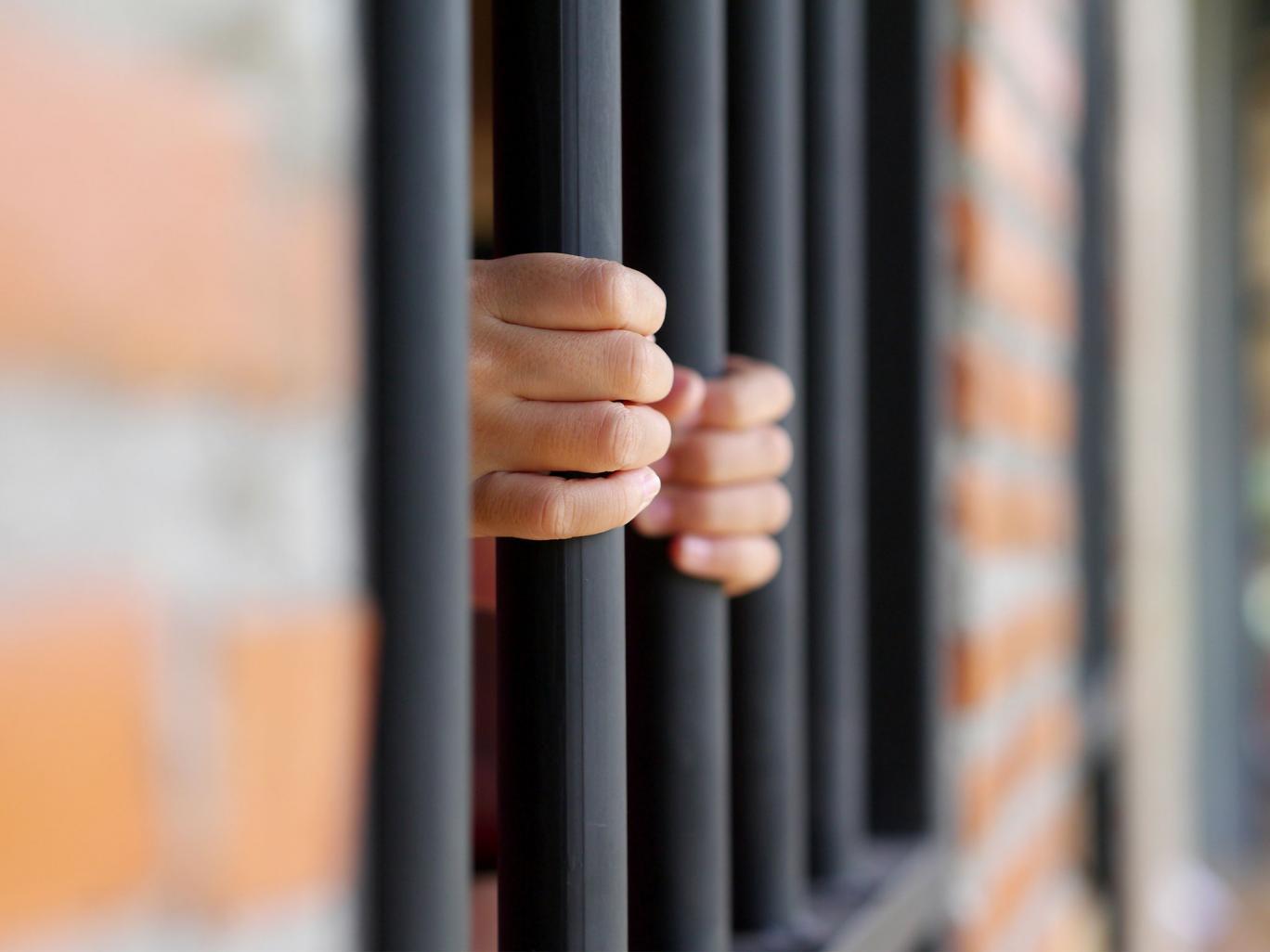‘You could see their distress’: Women in prison far more likely to self-harm than male inmates
‘I saw lots of women self-harming. It was an absence of attention for many of them and feeling like not having someone to recognise they were alive,’ a former prisoner tells Maya Oppenheim


Women in prison are substantially more likely to self-harm than male inmates as the number of female prisoners affected hits its highest level in nearly a decade.
Government data shows 3,007 incidents of self-harm per 1,000 prisoners in female establishments between September 2018 and September 2019 – almost five times the equivalent figure for men.
Almost a third of female prisoners were found to have self-harmed, and charities say this is indicative of problems with the justice system which mean women are given inappropriate sentences.
A former female prisoner, who chose to remain anonymous, said she suffered from a great deal of “unaddressed trauma” while in prison.
“When I was in contact with the prison system, a lot of trauma wasn’t recognised,” the 51-year-old told The Independent. “All that trauma that got you there in the first place goes unaddressed.”
She added: “I had experienced violence and abuse from childhood. Looking back it’s clear that I was spiralling around this time. There were a lot of signs of the underlying trauma from violence which weren’t brought up once during my time in prison.
“I saw lots of women self-harming. You could see their distress – it was an absence of attention for many of them and feeling like not having someone to recognise they were alive. They were isolated and isolated again. It was a sign of distress and not having anywhere else to take it.”
A great deal of the support she witnessed being provided to female inmates came from fellow prisoners, she added.
She said she was still living with anxiety and depression but has managed to address other issues due to being able to access mental health support since leaving prison – adding she is now working in the homelessness sector providing supported housing for those who have been sleeping rough for long periods.
Jemima Olchawski, chief executive of Agenda, a charity which campaigns for women and girls at risk, said: “The high number of women self-harming in prison is heartbreaking and points to a broken system.
“Nearly 60 per cent of women in prison have experienced domestic abuse, rates of poor mental health are high and the vast majority are in custody for non-violent offences. Prison is simply not the right place for them, leaving them exposed to further harm. Women need support in the community to tackle the underlying issues they face.
“We know there’s an alternative that works. Services provided by women’s centres have a proven track record of helping women turn their lives around.”
She called for the government to “urgently deliver” on its commitments in the Female Offender Strategy to drive down the numbers of women in jail – as well as “sustainably funding these vital and hard-pushed services” which have a record of curbing the chance of reoffending.
A new report from the Prison Reform Trust found 80 per cent of women in jail were inside for non-violent offences.
Dr Kate Paradine, chief executive of Women in Prison, said the latest “shocking statistics” on self-harm are more “damning evidence of the deepening prison crisis”.
She added: “Instead of imprisoning women for being homeless, not having money to pay their bills and not having access to adequate mental health care and substance-misuse support, the government needs to adequately fund its own strategy which would enable women to receive support in their communities and reduce the number of women in prison.
“The pitiful funding allocated to the women’s strategy ends in seven weeks and there is no plan for future funding for vital support services like women’s centres. Ministers need to get a grip on this issue and act with urgency. Lives depend on it.”
Alex Hewson, senior policy officer at the Prison Reform Trust, said: “These figures reveal just how limited progress has been in delivering on the commitments of the government’s Female Offender Strategy.
“For the sixth consecutive year self-harm amongst women in prison has risen, and it is now at its highest level in nearly a decade. With self-harm rates among women almost five times higher than for men in prison, this is just one of many areas in our justice system where women are failed.”
A recent study from the Samaritans looking at suicide in prisons found female prisoners in England and Wales are up to 20 times more likely to take their own lives than women in the community.
The London Assembly Police and Crime Committee has previously found women convicted of minor offences are frequently jailed for short sentences. They were also more liable to turn to crime due to poverty, drug and alcohol problems, mental health issues and coercive relationships with men.
Frontline service providers have frequently warned women in prison are often victims of much more serious offences than the ones they have been convicted of.
A Ministry of Justice spokesperson said: “Twice as many female than male prisoners have known mental health issues.
“That is why we have invested £5.1m in community alternatives to prison through our Female Offenders Strategy, including funding for new women’s centres where the underlying causes of their criminality can be addressed.
“We have also improved prison officer training on suicide, self-harm and the complex needs of women offenders.”
You can contact the Samaritans by calling them for free from any phone on 116 123, email jo@samaritans.org or visit www.samaritans.org to find details of your nearest branch.
Join our commenting forum
Join thought-provoking conversations, follow other Independent readers and see their replies
Comments